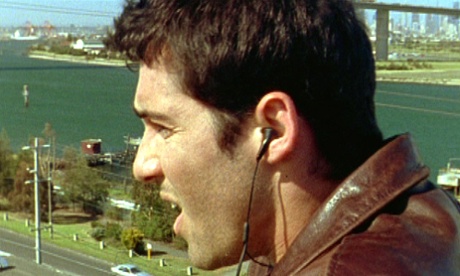
The most fitting words to describe the kind of audiences suited to the films of writer/director Ana Kokkinos are expressed by the title of her 1994 cinematic debut: Only the Brave. Augmenting her film career with work in television soap opera (including directing episodes of The Secret Life of Us and The Time of Our Lives), Kokkinos’s cinematic oeuvre is among the most hard-hitting bodies of work in Australian cinema.
Sexual exploration and sexual exploitation are recurring themes, from an abused boy in 2009 drama, Blessed (which spanned 24 hours in the life of a bunch of teenagers, switching perspective to their mothers halfway through) to a man kidnapped, tortured and raped by a trio of hoodie-wearing women in 2006’s psycho-sexual drama, The Book of Revelation.
None of Kokkinos’s films have matched the impact or the scuzzy hot-blooded style of her sophomore effort Head On (1998), adapted from the first novel by The Slap author Christos Tsiolkas. Thanks in part to a fearless performance from Alex Dimitriades as Ari, a young drug-fuelled gay man wrestling with his sexuality and his conservative Greek heritage, the film is a gut-busting portrait of youth disenfranchisement.
Rather than focusing on teenage uneasiness, sexual discovery, ethnic culture, drug addiction or family pressure, Kokkinos throws them all into one big angsty pot and stirs. Ari is the tour guide for a version of Melbourne rarely seen on screen: the city as a low-lit hive of trouble and sleaziness strewn with dodgy cops, dingy honky tonks and desperate, horny people.
Ari has sexual encounters in laneways, snorts and deals speed, hangs out with his cross-dressing best friend Johnny (Paul Capsis) and – in particularly confronting scenes towards the end of the film – is detained and accosted by sadistic police. Head On is such a darkly stylised excursion into grotty cosmopolitan life that scenes set during daylight seem, perversely, like hallucinations.
A walk in the park it ain’t. Sceptics who think of Australian cinema as a suite of needle-in-the-arm junkie dramas will assume Head On sounds like more of the same-old same-old, but there is something menacingly special about the way Kokkinos reopens the wounds of adolescence and makes growing up feel painful again.
Head On is social realism crossed with a nightmare; kitchen sink drama that enters the realm of the senses. The film starts as a relatively specific tale of a gay Greek-Australian’s troubled passageway from adolescence to adulthood. It evolves into a far broader sense of dissatisfaction with an existential, borderline nihilistic bent. In the final scenes Ari arrives at a grim conclusion. “I’ll live my life. I’m not going to make a difference. I’m not going to change a thing. Nobody is going to remember me when I’m dead.”
Viewed as a straight-up drama, Head On sometimes falls down, a victim of its own hyper style. Kokkinos cranks up the elements with scenes graded in extreme colour and woozily paced footage resembling a dated music video. But viewed as a slow-burning portrait of an extended nightmare – of a coming of age gone brutally wrong – the film is painfully brilliant.

